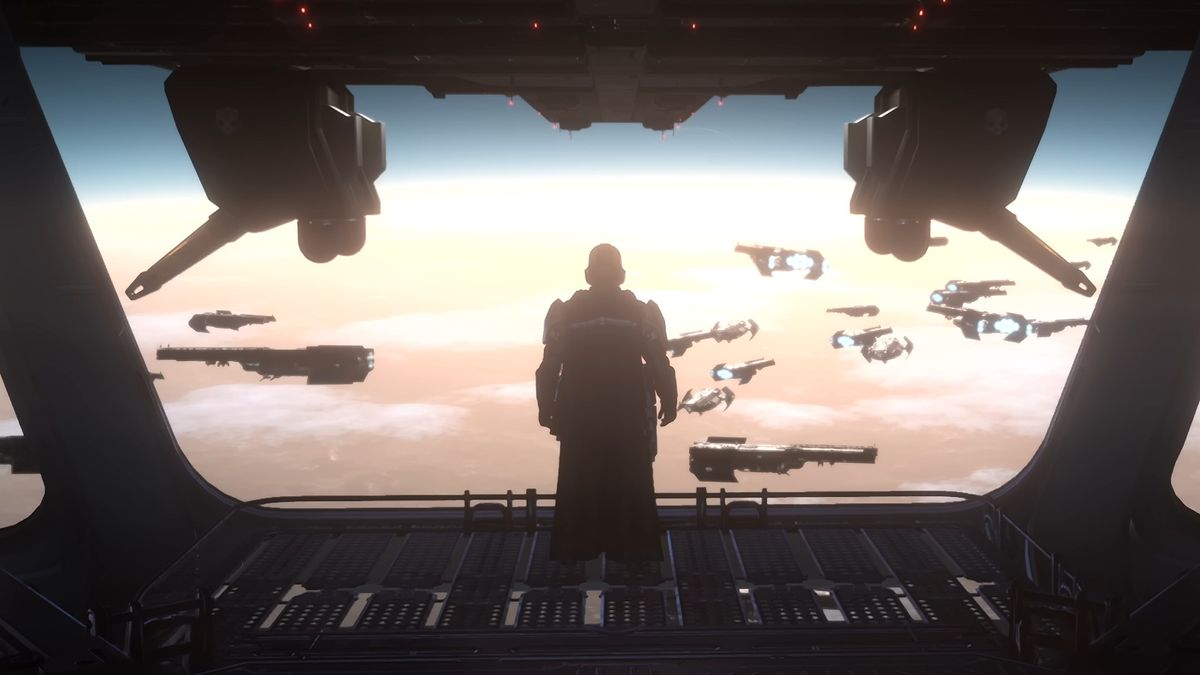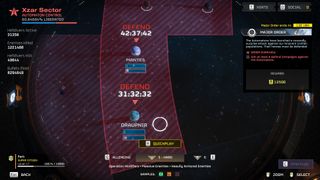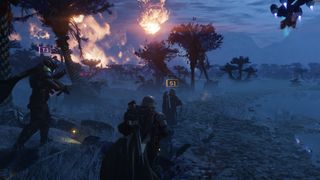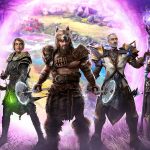Helldivers 2's Galactic War is much more than just mission selection. In a short time, players have placed value on the status of their favorite planets and reacted to wins and losses in liberating a sector. The simulated conflict that plays out both in-game and on social media has become an unexpected focus of the Helldivers 2 experience.
This is unexpected for the players. For developer Arrowhead Game Studios, the war is a product of careful planning and storytelling by a specific person behind the scenes pulling the strings: Arrowhead CEO Johan Pilestedt described PC Gamer as Helldivers 2's “Dungeon Master.”
“We have a real person with the job title Game Master,” Pilestedt said in an interview with PC Gamer today. His name is Joel and he takes his job very seriously.
“We have integrated many systems into the game where the game master has a lot of control over the gaming experience. We’re continually evolving this based on what happens in the game,” Pilestedt continued. “And as part of the roadmap, there are things we want to keep secret because we want to surprise and delight.”
According to Pilestedt, Dungeons and Dragons was a major inspiration for Arrowhead. The studio's goal is to replicate the collaborative, reactive storytelling of tabletop gaming in Helldivers 2, while acknowledging the differences between designing a campaign for a small group and one for millions of players.
“It's the same format when you build this for millions of players, except you can't be as personal to each individual. But you can still do the same twists and turns.”
These twists, as Arrowhead explained before the release of Helldivers 2, can be as detailed as granting a specific player access to a specific strategy mid-mission to spice things up, but they also extend to larger narrative events in the galactic War. We got our first taste of these events a week after release, when the offensive campaign against the Terminids was interrupted by Automaton invasions on the other side of the galaxy.
There were some sudden moments where maybe one planet was too easy or another was too hard and [Joel] had to get up in the middle of the night.
Johan Pilestedt, CEO of Arrowhead
Arrowhead claims to have “predictions” about how the war will turn out and has developed “setpieces” that it believes will be significant, but in true tabletop fashion the story will change depending on player behavior. In fact, that is already the case. Game Master Joel has already had to grease the wheels for the enemy a few times when the Helldivers community proved a little to efficient in spreading freedom.
“There were some sudden moments where maybe one planet was too easy or another was too hard and [Joel] had to get up in the middle of the night to give the Automatons a little reinforcement so the players wouldn't take them [the planet] too fast,” said Pilestedt.
Another moment of improvisation was less obvious. After the Fellowship managed to liberate the first Terminid planets faster than Arrowhead expected, there was an unplanned day where “nothing happened” before the Automataon invasion was scheduled to begin.
“So Joel, in his infinite wisdom, decided, ‘What happens when one faction wins part of a war? Now, you mine everything.' There is the Incendiary mine “Players may remember a 24-hour period where the Incendiary Mine strategy was available for free on all missions. A cheeky, if vague, moment of payoff.
The community's connection to each planet is significant.
Johan Pilestedt, CEO of Arrowhead
Pilestedt says the team is also paying attention to the unexpected bonds players have developed with individual planets, such as the now-legendary planet Malevelon Creek (aka “Robot Vietnam”), which recently fell under Automaton's control. Players mourn the loss, both because of its story importance and the fact that the planet is now inaccessible.
“We look at each planet as, 'There was a planet we did that was a lot of fun,' and we've done so many of them. But the community's connection to each planet is significant… So one of the things we're doing is how can we internally rethink these planets to become more of a character in the future?”
For Pilestedt, this back and forth with players is also based on the studio's general philosophy of players giving feedback and developers listening, which for him goes back to his time as a Quake and Half-Life modder.
“They had a really good connection between developing the game, releasing new updates, testing it with a very tight-knit group, and then making it available to a larger audience,” Pilestedt said.
“But that continual improvement, that continual evolution, and just being able to surprise people and get immediate feedback from them, the appreciation for the content that we're putting out, has been pivotal for me in how I look at games as something that “should be.” developed together with the community.”
As Arrowhead turns its attention to future updates, the community looks ahead to the next chapter of the war. Will Arrowhead lead the Helldivers back to the bugs when the Automaton invasion comes to an end? Given a recent Mech leak, we may soon be returning to the Terminid front with new hardware.




